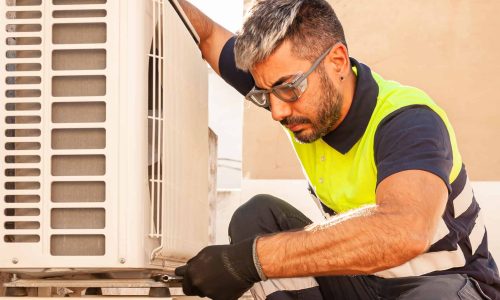If you’re considering upgrading your forced air heating system, you’re probably wondering whether it’s worth the cost. A new heating system can be a significant investment, and it’s important to carefully consider all the factors before making a decision. Upgrading your air heating system can provide a number of benefits, from improved comfort and energy efficiency to lower heating bills and reduced maintenance costs.
However, it’s important to weigh these benefits against the initial investment and ongoing expenses to determine whether the upgrade is a wise financial decision in the long run. In this article, we’ll take a closer look at what you should consider before upgrading your air heating system. Once you’ve made your choice, just contact us at River Valley Air Conditioning for professional and reliable help.
What to Consider First
“What is a forced air heating system is” fortunately has a simple answer. The system is a type of heating system commonly used in residential and commercial buildings. It works by using a furnace to heat air, which is then distributed throughout the building via ductwork and vents. The furnace can be powered by various sources, such as natural gas, propane, oil, or electricity.
Upgrading your air heating system is a significant investment, but it can improve your comfort and energy efficiency in the long run. However, before jumping into a new system, there are several factors to consider to ensure that the upgrade is worth the cost. These factors include the age and condition of your current system, your budget, and your energy-saving goals.
By considering these factors, you can make an informed decision on whether upgrading your forced air heating system is the right choice for you.
The Age of Your Current System
When deciding whether to upgrade your air heating system, one of the key factors to consider is the age of your current system. Like any appliance, heating systems have a limited lifespan, and as they get older, they become less efficient and more prone to breakdowns.
If your existing system is nearing or past its expected lifespan, it might be a good time to consider an upgrade. Older systems tend to be less energy-efficient, which means they consume more fuel or electricity to produce the same amount of heat. This inefficiency can lead to higher energy bills and a greater impact on the environment.
Your Home Comfort
Do you find certain rooms in your home are consistently too hot or too cold, regardless of the thermostat setting? This imbalance could indicate that your current system is struggling to distribute heat evenly. Upgrading to a more advanced forced hot air heating system can provide better control over temperature regulation and airflow, resulting in improved comfort throughout your home.
Additionally, newer heating systems often come with improved air filtration systems, which can help remove allergens and pollutants from the air, leading to better indoor air quality. This is particularly important for individuals with allergies or respiratory issues.
Older heating systems can often lead to dry air, which can cause discomfort and health issues such as dry skin and respiratory problems. Upgrading to a system with a humidifier can help regulate indoor humidity levels and improve overall comfort.
Saving Energy and Money

When it comes to upgrading your forced air heating system, one of the significant considerations is the potential for saving energy and money. Upgrading to a more efficient system can lead to reduced energy consumption and lower heating costs over time.
Newer air heating systems often come with advanced features designed to optimize energy usage. For example, they may incorporate variable speed blowers that can adjust the airflow based on the heating demands of your home. This allows for more precise temperature control and prevents unnecessary energy waste.
Your Own Environmental Ideals
If you’re concerned about reducing your carbon footprint and minimizing the environmental impact of your home’s heating system, upgrading to a more energy-efficient model is a step in the right direction. Modern forced air systems utilize cleaner technologies, emit fewer greenhouse gases, and contribute to a healthier planet.
Additionally, some newer forced air heating systems utilize refrigerants that have a lower impact on the ozone layer and are more environmentally friendly. This helps in preserving the earth’s protective ozone layer and minimizing harm to the environment.
By considering your environmental ideals when upgrading your air heating system, you can align your home’s energy usage with your commitment to sustainability. Not only will you reduce your carbon footprint, but you’ll also inspire others to make greener choices and contribute to a healthier planet for future generations.
Consult with HVAC Professionals

Before making a final decision, it’s advisable to consult with an experienced HVAC professional. They can assess your current system, evaluate your specific needs, and provide guidance on the best upgrade options for your home. Additionally, they can offer estimates on costs and inform you about any available rebates or incentives for energy-efficient upgrades.
Takeaway
In conclusion, upgrading your forced air heating system offers several potential advantages, including improved energy efficiency, enhanced comfort, and reduced environmental impact. Factors such as the age of your current system, energy efficiency benefits, upfront cost, and long-term savings should be carefully considered.
Seeking professional advice from our team at River Valley Air Conditioning will provide valuable insights to help you make an informed decision about upgrading your air heating system to one of these models.
